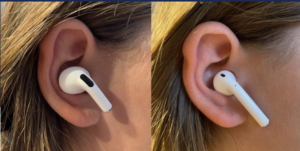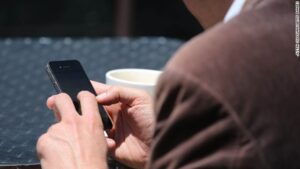Episode 1
Krukowski sent a persuasive case in the new analog listening and reconnecting in a Digital World. He systematically traces the history and evolution of sound and digital encroachment, he determines that the obsolescence of analog based audio plays a bigger than expected role in the evolution of society. In the digital age, we have become self centered, antisocial drones increasingly unaware of the world around us. Analog recording is like an accident in other ways On tape, there was no undo. We could try again if we had the time and money, but we couldn’t move backwards. What is done is done. For better and worse.What we lost analog is better or digital is better. His own understanding is he doesn’t believe that analog is old and digital is new because digital is not only new. Digital may be as old as humankind. This is computer logic. Digital is pre electronic. Analog is not only old because our body is analog ours ears are analog our eyes are analog, our sense of touch is analog . Digital music is downloading it or streaming it off a site. Speaker is an analog device. our technology is a communication tool, we can not hear digital music. Computers and devices can use digital information to exchange.
2 . When we listen on a speaker like radio. We are listening music on both ear at the same time. This sound is moving in space. When we are listening to music in cub ways and cars . we hear that music with both ears. Other people listen in same time. Furthermore we also moving different sense of our relationship in space to the sound. When we lasting on a speaker we listening to music in both ears at the same time. When we are Moving to ear bud or head phone, we heard only right channel is right ear and left channel is left ear. We no longer hear one sound in both ear. That means my right ear does not hear the sound that my left ear hears. That removes the way that we locate sounds in space. Our Earbuds lose our stereo hearing. Nobody can locate a sound directly in front People listening music in ear bud think sound come from inside their head. Speaker sound comes outside. Stereo hearing is location hearing and ear buds split our sense of location from our sense of hearing. When we are walking on the street and using ear buds, we may notice that our body language is slightly different than others who are walking responding to the sound around them. We are making a space of our own. Even we are in public space.
Episode 2
1.Jeremiah Moss argues about how A great city lost its soul. the developers in Astor place are privatizing public space in a very stealth way. He says that the city is suffering a hyper gentrification that means our neighborhoods are being changed slowly, being privatized for example Astor Place it’s a public place but it becomes privatized. He states that dirty city privatized public space tends to reinforce social inequality . Astor Place was rebuilt and architecture removed part of the street, widened the central square, planted trees, put in concrete slab seating, and tables with umbrellas. It is now used by corporations like IBM and Citibank to hold “advertisement” events. I’m pretty sure this is a prime example of zombie barbarianism.
2.In the 1920 , when the cities were crowded, vehicles were noisy. People are using elevators to get into the subway, it is difficult for people who are not used to it. Emily Thompson explains that the efforts to control sound in the streets lead to another set of changes to control interior spaces as concert halls with noise insulating walls . Architecture reduces the vibration , so the people can fully enjoy the concerts without interference from outside. Krukowski argues that controlling sound is considered noise to relevant people wearing headphones. People are able to hear music in large halls like Radio City.
- Kruskpwski’s overall message that digital technology is shaping and impacting the mind to the detriment of the shared human how we understand sound and how we listen to the forms of sound around us. The medium of digital technology is influencing people’s ways of hearing. We should listen to sound from space, we have to listen to what’s going on around the world.




